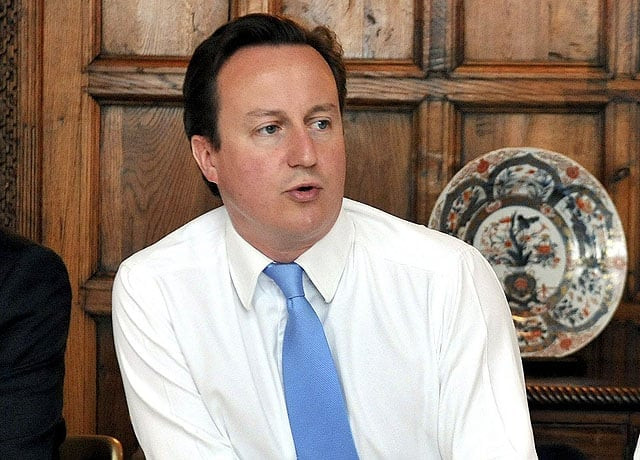British PM off to India seeking ‘new special relationship’
Britain’s Prime Minister David Cameron goes to India this week targeting a new special relationship.

Cameron, accompanied by his most senior ministers and bosses from some of Britain’s biggest companies, hopes to agree a string of lucrative trade and partnering deals during the visit.
Since taking power in May, Cameron has said he wants British foreign policy to focus more on business in a bid to boost the economy as it emerges from recession facing deep budget cuts to combat record state debt. “I want to refashion British foreign policy, the Foreign Office, to make us much more focused on the commercial aspects... making sure we are demonstrating Britain is open for business,” Cameron said last week.
His coalition government has singled out India as a key partner, saying it wants the two countries to forge a “new special relationship” and backing India for a permanent seat at the UN Security Council.
Cameron’s finance minister George Osborne, who is joining the trip, wrote in the Sunday Telegraph that this would be the “strongest British delegation to visit India in modern times”, including bosses from mobile phone company Vodafone and defence giant BAE Systems.
But some experts question what India has to gain from building closer ties with Britain when other, much bigger powers like the US and Japan are also courting it.
“The question is, what can we offer India?” Gareth Price, head of the Asia Programme at London foreign affairs think-tank Chatham House, told AFP.
Bilateral trade between the two countries was worth 11.5 billion pounds last year.
Britain is the most popular business destination in the European Union for Indian companies such as Tata and ICICI Bank – and the richest man in Britain is an Indian, steel magnate Lakshmi Mittal.
But if Cameron is to boost the bilateral relationship, Price said he would have to offer India something it wants like specific pledges on infrastructure or education – perhaps British universities opening operations in India.
“If he just comes back with smiles and handshakes and MoUs (memoranda of understanding) there will be a collective shrugging of shoulders,” Price added.
Centre-right Cameron, whose government has already been criticised in India for capping immigration from non-European Union countries, was invited to visit shortly after taking power by Indian Prime Minister Manmohan Singh.
Former foreign secretary David Miliband caused a diplomatic upset last year by linking the unresolved Kashmir dispute to the Mumbai terror attacks.
But Miliband’s successor under Cameron, William Hague, has vowed not to lecture historic rivals India and Pakistan over their relationship.
“Our approach would not be to tell those countries what to do, they must take forward their own bilateral relations,” Hague said in May.
Published in The Express Tribune, July 26th, 2010.



















COMMENTS
Comments are moderated and generally will be posted if they are on-topic and not abusive.
For more information, please see our Comments FAQ